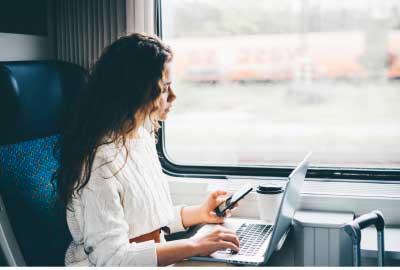Five Tips to keep you safe in hotels

The world is not as dangerous as headlines might make us sometimes feel. But in addition to when staying in familiar risky trouble spots, we should take hotel safety seriously no matter where we are. Franck Quevillon, CWT RoomIt Director of Strategy, gives us five tips on how to avoid unnecessary risks when choosing and staying in hotels.
1. Hotel location: “The precise location of your hotel can determine the risk of crime, exposure to social unrest and to natural disasters. Even in the safest cities, some streets are more secure than others, and this includes some of Europe’s famous capitals, such as in London, Paris and Berlin. Key to safety is to be well informed. Source location information through your company travel or security manager, your travel agent or colleagues who know the destination.”
2. Floor location: “Avoid ground floor and first floor rooms, which are more vulnerable to break-ins. Floors from the 10th upwards will be more difficult to vacate in case of emergency, so avoid staying on those floors. Choose rooms near fire escapes, and
if fire escapes become blocked, it will be easier to escape – or to be rescued – from the 2nd floor. Rooms at the back of a hotel are often not only quieter, but they might also be safer during a riot or demonstration in front of the hotel.”
3. Keep key information private: “Don’t talk about sensitive business matters in corridors and elevators. When checking in, make sure that strangers are not listening. Don’t loudly announce your name, company or business mission, or credit card or passport numbers. In riskier locations, don’t give information that identifies you as a business person from a Fortune 500 company or from a rich country. If a criminal is looking for a target, you don’t want to be the more interesting candidate.”
4. Ensure doors are locked: “Never choose a hotel without locks, especially in risky locations. Good hotels invest in good room-locking systems. Digital locks that also lock elevators are becoming standard. In some hotels, guests can download a
QR code to their mobile phones to unlock doors. A number of solutions available on the market can add a layer of security, such as door wedges, portable locks and travel door alarms.”
5. Network and data security: “Getting information about hotel network security may be tedious, but it is a top security issue. Choose hotels that offer secure Wi-Fi, have prominent security measures to protect guests’ data, and take precautions against data breaches or traveller identity theft. CWT can provide security advice on a property, and of course you can also discuss it with your firm’s security manager or colleagues who know the hotel. For extra security, use corporate connectivity tools instead of Wi-Fi, even if this costs more.”
This article was written by Vicki Sussens and originally published in Connect Winter 2018.



